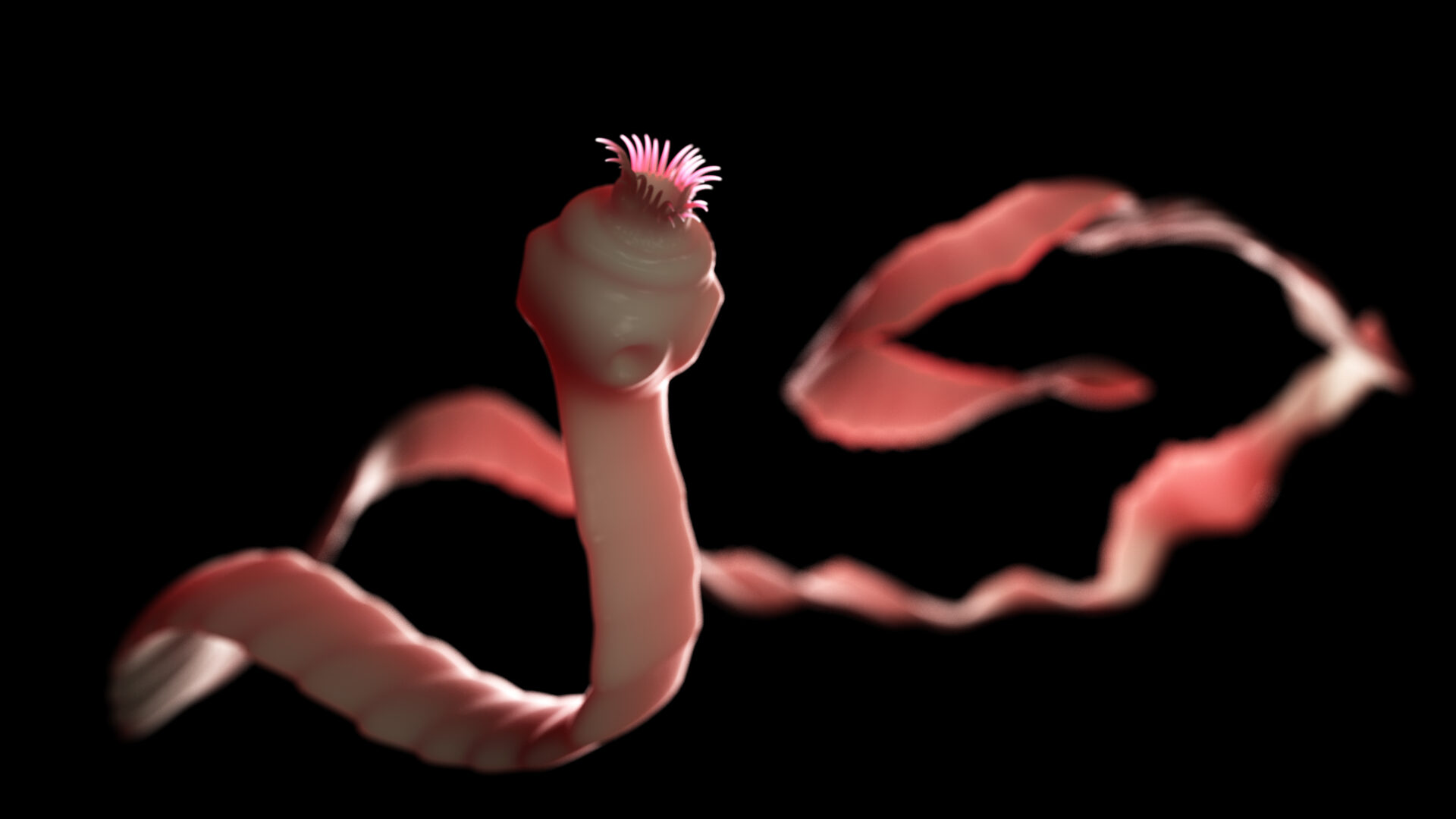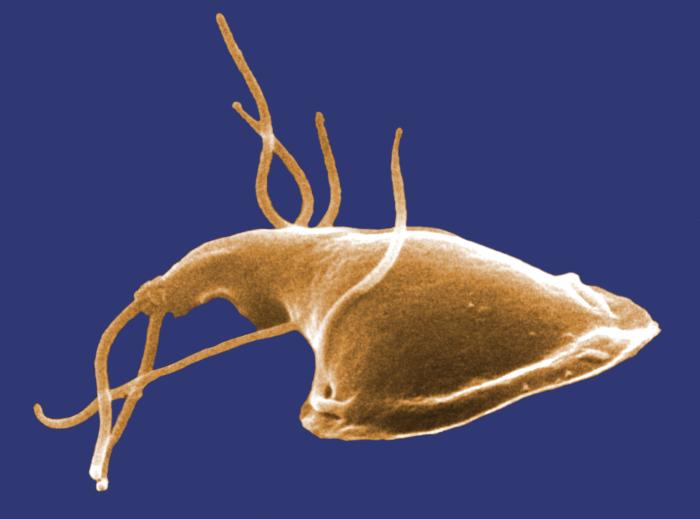Parasite Testing
The parasite multiplex PCR test from stool provides a qualitative in vitro test for single or multiple detection of 16 most common species of intestinal parasites – intestinal helminths (worms) and intestinal protozoa.
Parasite multiplex PCR test is the only one of its kind, represented by two tests that can be performed independently of each other.
Intestinal protozoa multiplex PCR:
- Giardia lamblia
- Entamoeba histolytica
- Cryptosporidium spp.
- Blastocytis hominis
- Dientamoeba fragilis
- Cyclospora cayetanensis
Protozoa are microscopic, one-celled organisms that can be free-living or parasitic in nature. They can multiply in humans, which contributes to their survival and also permits serious infections to develop from just a single organism.
Intestinal helminths (worms) multiplex PCR:
- Ancylostoma spp.
- Ascaris spp.
- Enterobius vermicularis
- Hymenolepis spp.
- Enterocytozoon spp.
- Encephalitozoon spp.
- Necator americanus
- Strongyloides spp.
- Taenia spp.
- Trichuris trichiura
Helminths are multicellular parasitic worms that can infect humans and animals, causing a variety of diseases known as helminthiases. They encompass three main classes—trematodes, cestodes, and nematodes—each with distinct morphological characteristics and life cycles.
————————————
To ensure the utmost accuracy and reliability of the test results, every sample is subjected to both positive and negative control measures. Our testing protocol guarantees a minimum accuracy level of 99.9%, with a detection limit set at 100 copies per reaction.
Our process prioritises speed and simplicity, tailored for efficient detection of parasites in stool samples, eliminating the need for freezing or extensive material.
You can expect results within 3-7 days of sample receipt!
We provide easily understandable laboratory findings. Should you have any inquiries, our team is ready to assist in interpreting results and understanding the significance of individual parasite species.
————————————
What are parasites?
Parasites are organisms that rely on another organism, called the host, for their survival. They come in various forms like worms, protozoa, and insects. While some parasites are harmless, others can lead to severe health issues. They can invade the human body through contaminated food or water, insect bites, or even through the skin.
Certain parasites, like malaria, are a significant cause of death, while others, such as parasitic nematodes, can result in disfigurement, blindness, and serious economic hardships.
Various types of parasites can infest the human body, including:
Tapeworms, which are flat, segmented worms, can grow remarkably long, reaching up to 10-12 meters in length. They reside in the intestines of their hosts and can cause symptoms such as abdominal pain, diarrhoea, and weight loss. Additionally, tapeworm infections can lead to nutritional deficiencies due to the parasites absorbing nutrients from the host’s digestive system. Some severe cases may result in intestinal obstruction or migration of the tapeworm to other organs, causing complications like bile duct obstruction or neurocysticercosis, where tapeworm larvae infect the brain.
Roundworms, also known as nematodes, are elongated worms that can reach lengths of up to 15 cm. They typically reside in the intestines of their hosts and can cause a range of symptoms. In addition to abdominal pain, roundworm infections may lead to respiratory symptoms such as coughing and wheezing. These symptoms occur because certain species of roundworm larvae can migrate through the body, including the lungs, causing irritation and inflammation. Additionally, severe roundworm infections can result in complications such as intestinal blockages or malnutrition due to nutrient absorption by the worms.
Giardia is a single-celled, mycroscopical parasite that belongs to the group of protozoa. Despite its small size, Giardia can cause significant health issues. When ingested, typically through contaminated water or food, Giardia can multiply in the intestines, leading to symptoms such as diarrhoea, abdominal pain, and weight loss. Giardia infections can result in long-term complications, particularly in vulnerable populations such as children and individuals with weakened immune systems. Chronic giardiasis, where symptoms persist for months or even years, can lead to malnutrition and impaired growth in children, as well as ongoing gastrointestinal discomfort and fatigue in adults.
“Spread by the bite of an infected mosquito, triatomine bug, or blackfly, or perhaps from eating contaminated produce or passed from a mother to her baby, parasitic diseases are responsible for an enormous global burden of illness, disability, and death. In 2019, there were 229 million new malaria infections worldwide and 409,000 deaths, many of those children under five years of age. NTDs, including onchocerciasis, trachoma, and lymphatic filariasis (LF), affect more than one billion people globally. However, despite their burden on global health, parasitic diseases are often overlooked or are not well known.” – https://www.cdc.gov/parasites/resources/pdf/dpdm_strategic_plan.pdf
Parasitic infections in humans can manifest with a variety of symptoms, which often depend on the type of parasite involved and its location within the body.
SYMPTOMS OF PARASITE INFECTIONS INCLUDE:
- Abdominal pain: Parasites residing in the gastrointestinal tract can cause abdominal discomfort, cramping, or tenderness.
- Diarrhoea: Many parasitic infections lead to changes in bowel habits, such as frequent loose stools or diarrhoea.
- Nausea and vomiting: Some parasites can trigger feelings of nausea and lead to episodes of vomiting.
- Fatigue: Parasitic infections can sap the body’s energy, leading to persistent fatigue and weakness.
- Weight loss: Chronic parasitic infections can interfere with nutrient absorption in the intestines, resulting in unintended weight loss over time.
- Itching or irritation: Certain parasites, particularly those affecting the skin or mucous membranes, may cause itching, rashes, or irritation.
- Allergies: The substances eliminated during the life of the parasites have an enormous allergic effect.
- Fever: Infections caused by certain parasites may induce a fever as the body’s immune system responds to the invading pathogens.
The list of symptoms parasitic infections can cause is not exhaustive, and can also include the following:
- Digestive Issues: Parasites residing in the digestive tract can lead to symptoms such as bloating, gas, cramps, and constipation. These symptoms may occur alongside diarrhoea or independently.
- Joint and Muscle Pain: Some parasitic infections can cause inflammation in the muscles and joints, resulting in pain, stiffness, or swelling.
- Skin Problems: Certain parasites may cause skin manifestations such as lesions, ulcers, or hives. Itching and irritation of the skin can also occur, particularly in cases of parasitic infestations like scabies or lice.
- Allergic Reactions: Parasites can trigger allergic reactions in some individuals, leading to symptoms such as itching, hives, swelling of the face or throat, difficulty breathing, and anaphylaxis in severe cases.
- Neurological Symptoms: Infections with certain parasites, such as tapeworm larvae migrating to the brain or parasites affecting the central nervous system, can result in neurological symptoms like headaches, seizures, confusion, or altered mental status.
- Anaemia: Chronic parasitic infections, especially those involving blood-feeding parasites like hookworms, can lead to anaemia due to blood loss or nutrient deficiencies.
- Respiratory Symptoms: Parasites that affect the respiratory system, such as lung flukes or certain types of roundworms, may cause symptoms like coughing, wheezing, chest pain, and difficulty breathing.
- Urinary Symptoms: Infections with parasites that affect the urinary tract, such as certain species of worms or protozoa, may result in symptoms like urinary frequency, urgency, pain, or blood in the urine.
Please note: It’s important to note that the presence of these symptoms doesn’t necessarily indicate a parasitic infection, as they can also be caused by other medical conditions. However, if someone experiences persistent or severe symptoms, especially after traveling to regions known for parasitic diseases or exposure to potential sources of contamination, seeking medical attention is advisable. Proper diagnosis and treatment are essential for effectively managing parasitic infections and preventing complications.
HOW TO PROTECT YOURSELF FROM PARASITES
- Practice Good Hygiene: Wash your hands frequently with soap and water, especially before eating, after using the bathroom, and after handling soil or animals. Teach children the importance of proper handwashing techniques.
- Ensure Safe Food and Water: Consume safe and properly cooked food. Wash fruits and vegetables thoroughly before eating, and avoid consuming raw or undercooked meat, seafood, or eggs. Drink safe, clean water from a reliable source, and consider boiling or purifying water if traveling to areas with unsafe drinking water.
- Maintain Sanitary Conditions: Keep living spaces clean and free from pests such as rodents and insects, which can transmit parasites.
- Avoid Contact with Contaminated Soil and Water: Be cautious when swimming or bathing in freshwater lakes, rivers, or ponds, as they may harbour parasites like Schistosoma. Avoid walking barefoot in areas where parasites may be present in the soil, such as tropical or subtropical regions.
- Practice Safe Sexual Practices: Use barrier methods such as condoms during sexual activity to reduce the risk of sexually transmitted parasites like Trichomonas vaginalis.
- Protect Pets and Livestock: Ensure that pets and livestock receive regular veterinary care, including deworming treatments. Clean up pet waste promptly and avoid allowing pets to roam freely in areas where they may come into contact with parasites.
- Travel Precautions: If traveling to regions where parasitic infections are prevalent, take preventive measures such as avoiding untreated water, consuming safe food, and using insect repellent to prevent insect-borne parasites like malaria or Trypanosoma.
Evidence
New Technologies for Detection of Enteric Parasites – Una Ryan, Andrea Paparini, Charlotte Oskam – https://pubmed.ncbi.nlm.nih.gov/28385423/
High throughput multiplex PCR and probe-based detection with Luminex beads for seven intestinal parasites – Mami Taniuchi, Jaco J Verweij, Zannatun Noor, Shihab U Sobuz, Lisette van Lieshout, William A Petri Jr, Rashidul Haque, Eric R Houpt – https://pubmed.ncbi.nlm.nih.gov/21292910/
Detection and identification of Giardia species using real-time PCR and sequencing – N Jothikumar, Jennifer L Murphy, Vincent R Hill – https://pubmed.ncbi.nlm.nih.gov/34271057/
Detection of intestinal protozoa in paediatric patients with gastrointestinal symptoms by multiplex real-time PCR – L Maas, J W Dorigo-Zetsma, C J de Groot, S Bouter, F B Plötz, B E van Ewijk – https://pubmed.ncbi.nlm.nih.gov/24131443/
Comparison of microscopy and PCR for detection of intestinal parasites in Danish patients supports an incentive for molecular screening platforms – Christen Rune Stensvold, Henrik Vedel Nielsen – https://pubmed.ncbi.nlm.nih.gov/22090410/
Detection of Cryptosporidium parvum in human feces by PCR – P Fischer, H Taraschewski, R Ringelmann, B Eing – https://pubmed.ncbi.nlm.nih.gov/10622627/
Detection of selected intestinal helminths and protozoa at Hospital Universiti Sains Malaysia using multiplex real-time PCR – M Basuni, Z Mohamed, M Ahmad, N Z Zakaria, R Noordin – https://pubmed.ncbi.nlm.nih.gov/23018507/




